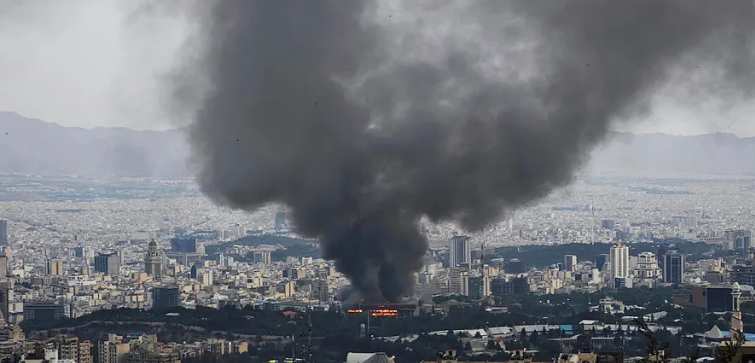Since the early morning of June 13, 2025, the conflict between Israel and Iran has escalated sharply, with both sides engaging in large-scale military confrontations. Israel launched a series of airstrikes targeting Iran’s nuclear facilities and military installations, causing significant casualties. In retaliation, Iran’s Islamic Revolutionary Guard Corps (IRGC) has carried out multiple missile and drone attacks on targets Israel within.
Iran’s Military Actions
Iran’s Islamic Revolutionary Guard Corps announced the launch of the “True Promise-3” operation on the evening of June 13, targeting Israeli military centers and air force bases. Iran claimed that its missiles and drones struck at least 150 targets in Israel, including the Nevatim Air Force Base, Ovda Air Force Base, and Tel Nof Air Force Base near Tel Aviv. IRGC spokesman Ali Mohammed Naeni stated that Iran’s missile strikes would continue until dawn on June 17.
Background and Causes of the Conflict
The escalation of this conflict stems from Israel’s assertion that Iran nuclear’s program and missile capabilities pose a threat to its security, prompting Israel to take preemptive military action. Israeli Prime Minister Benjamin Netanyahu claimed that the Israeli military’s operations aimed to eliminate the “nuclear threat” and “missile threat” from Iran and warned civilians in Tehran to evacuate. However, Iran emphasized that it has never sought war but will resolutely defend itself.
International Reactions
The international community has expressed grave concern over the escalation of the conflict and has called on both sides to exercise restraint to prevent further deterioration of the situation. China’s Ambassador to the International Atomic Energy Agency, Li Song, condemned Israel’s military actions against Iran, highlighting the importance of maintaining the political and diplomatic process on the Iranian nuclear issue. French President Emmanuel Macron urged Iran to return to the negotiating table, arguing that this is the only way to ease tensions. Turkish President Recep Tayyip Erdogan stressed that diplomacy is the only viable solution to the Iranian nuclear issue and called on all parties to avoid an uncontrollable escalation of the situation.
Impact of the Conflict
The escalation of the Israel-Iran conflict has not only caused significant casualties and property damage to both sides but also poses a severe threat to peace and stability in the Middle East. Israel’s airstrikes have damaged infrastructure in Iran, including nuclear facilities, oil refineries, and television buildings. In retaliation, Iran’s missile strikes have triggered air raid sirens in parts of Israel and caused destruction in some areas. Additionally, the conflict has raised international concerns about regional economic stability and energy supplies, especially after Israel’s airstrikes on Iran’s energy infrastructure led to the suspension of natural gas supplies from Israel to Egypt.
Conclusion
Iran’s bombing campaign against Israel marks a significant escalation in the conflict between the two countries. This military confrontation has not only intensified the tensions between Israel and Iran but also poses a major challenge to peace and stability in the Middle East. The international community has widely called on both sides to exercise restraint and resolve disputes through dialogue and negotiation to prevent further escalation. However, under the current tense situation, how to achieve this goal remains an urgent question.


https://shorturl.fm/v8DQo
https://shorturl.fm/mln9S
https://shorturl.fm/xud3v